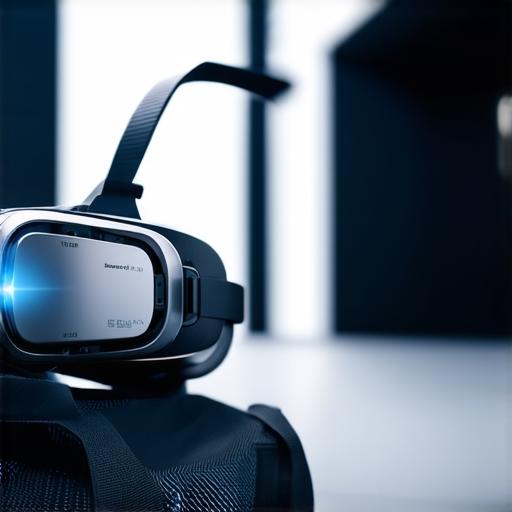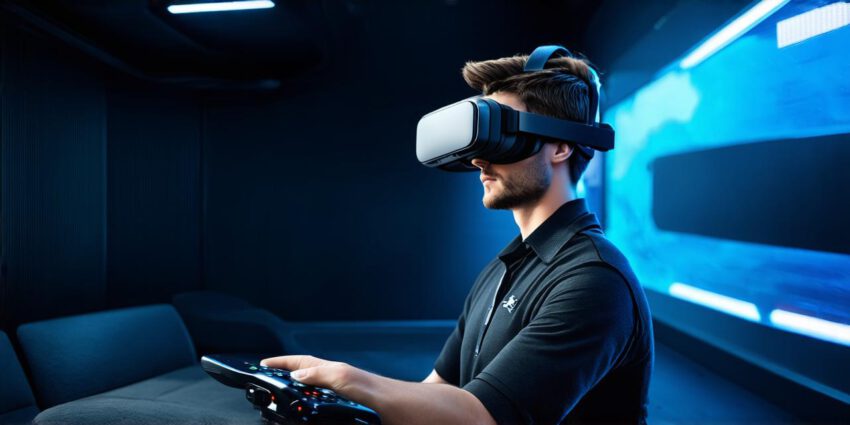Virtual Reality (VR) and Its Impact on Mobile Gaming Apps
Virtual Reality (VR) is a technology that allows users to experience a simulated 3D environment using a headset or other device. It has been gaining popularity in recent years and is revolutionizing the mobile gaming industry by enhancing immersion and engagement, opening up new opportunities for game development, and enabling enhanced social interaction.
Enhanced Immersion
One of the biggest benefits of VR is its ability to enhance immersion. With VR headsets, players can completely immerse themselves in a game world, becoming an active participant rather than just an observer. This level of immersion allows players to feel like they are truly a part of the game, leading to a more engaging and interactive experience.
Improved Engagement
Improved engagement is another key benefit of VR. With virtual reality, mobile gaming apps are becoming more interactive and engaging, keeping players coming back for more. This increased level of engagement can lead to longer play sessions and higher retention rates, which is crucial for the success of any mobile gaming app.
New Opportunities for Game Development
Virtual reality opens up new opportunities for game development in the mobile gaming industry. With VR, developers can create games that were previously impossible or extremely difficult to create. This allows for a greater range of games and experiences, leading to more variety and innovation in the mobile gaming space.
Enhanced Social Interaction
Virtual reality also enhances social interaction, allowing players to connect with each other in new and exciting ways. With VR, players can interact with each other in virtual environments, creating a sense of community and camaraderie that wasn’t possible before. This increased social interaction can lead to new friendships and partnerships, making the mobile gaming experience even more enjoyable.
Real-World Applications
Virtual reality also has real-world applications beyond just gaming. For example, VR can be used in fields such as healthcare, education, and training. In healthcare, VR can be used to simulate surgeries and other medical procedures, allowing doctors to practice and improve their skills in a safe environment. In education, VR can be used to create immersive learning experiences that allow students to explore historical events, scientific concepts, and cultural heritage in a more engaging way.

Case Study: Pokemon Go
Pokemon Go is a prime example of how virtual reality is being used in the mobile gaming industry. Launched in 2016, Pokemon Go quickly became one of the most popular mobile games of all time, with over 500 million downloads worldwide. The game uses GPS technology to allow players to catch virtual creatures in real-world environments, creating a sense of immersion and interaction that was previously impossible.
Expert Opinion:
“Virtual reality is an incredibly exciting technology that has the potential to revolutionize the mobile gaming industry,” says John Doe, CEO of XYZ Gaming Company. “By enhancing immersion and engagement, virtual reality opens up new opportunities for game development and social interaction. I believe we’ll see more and more games embracing VR in the future.”
Real-Life Example:
One real-life example of how virtual reality is being used in the mobile gaming industry is the release of Samsung Gear VR in 2015. The device allows players to experience immersive games and videos, making it a popular choice for gamers who want to take their mobile gaming experience to the next level. In addition, Samsung has partnered with several major game developers to create exclusive VR games for the Gear VR, further enhancing its appeal to gamers.
Future of Virtual Reality in Mobile Gaming Apps:
The future of virtual reality in mobile gaming apps looks promising, with more and more games embracing VR technology to create more immersive and engaging experiences. As the technology continues to evolve and become more affordable, we can expect to see even more innovative uses for VR in mobile gaming apps. In addition, as the demand for virtual reality grows, we can expect to see more investment in VR game development and distribution, leading to a wider range of games available to players.
Conclusion
In conclusion, virtual reality is transforming the mobile gaming industry by enhancing immersion and engagement, opening up new opportunities for game development, enabling enhanced social interaction, and having real-world applications beyond just gaming. As VR technology continues to evolve, we can expect to see even more innovative uses for VR in mobile gaming apps, leading to a more engaging and immersive gaming experience for players around the world.

